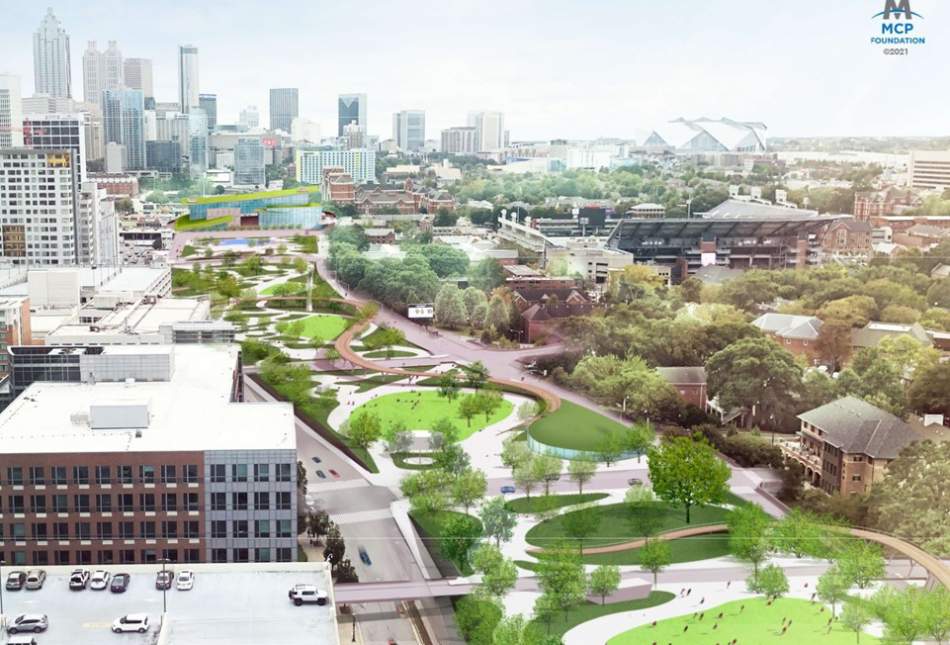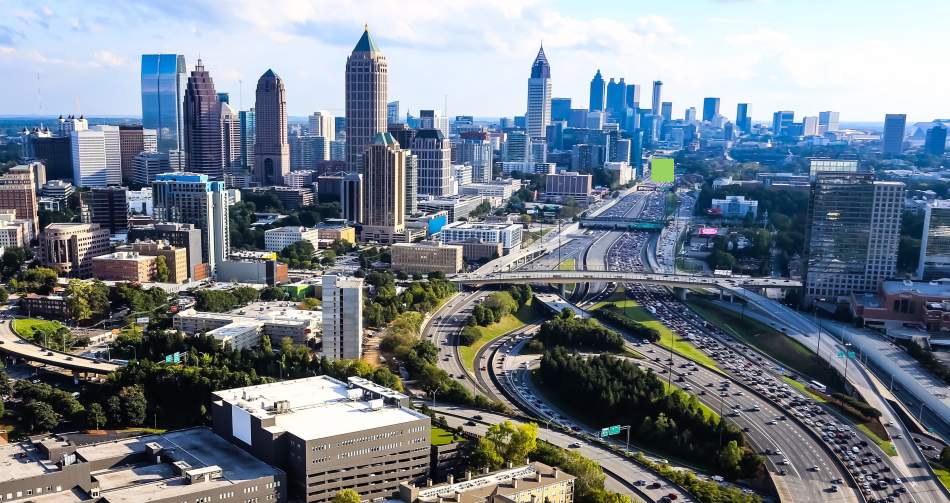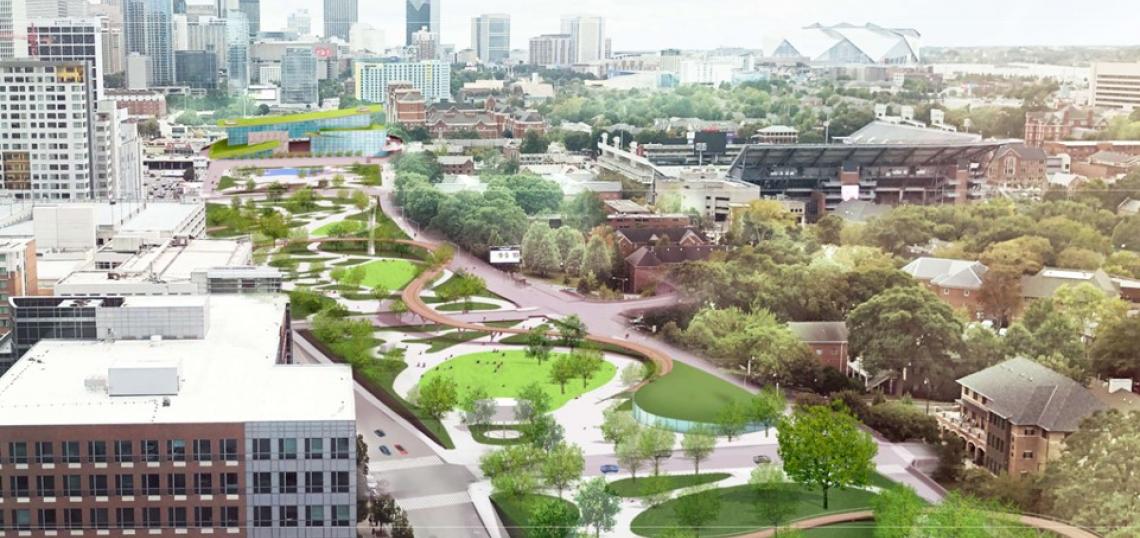Atlanta's no stranger to grandiose plans for creating parks out of thin air.
Over the past five years, park-starved Buckhead has drawn up and modified a 9-acre vision for HUB404, a greenspace that would cap lanes of Ga. Highway 400 alongside a MARTA station—for which fundraising efforts have recently resumed after a COVID-19-induced slumber.
Later came talk of a 14-acre downtown “Stitch” (since stalled); a 20-acre park over Ga. Highway 400 in Sandy Spring’s “Pill Hill” medical zone; and a looser idea pushed by Chick-fil-A CEO Dan Cathy for a park over the Interstate 85/75 interchange in Midtown, connecting Georgia Tech with the growing subdistrict.
Now comes the “Midtown Connector”—the grandest of Atlanta’s highway-capping park ambitions yet.
 The 25-acre park concept from above, running almost the length of Georgia Tech's campus. MCP Foundation
The 25-acre park concept from above, running almost the length of Georgia Tech's campus. MCP Foundation
This week, the Atlanta Regional Commission relays that a 10-block new greenspace concept is being studied that would stretch from 10th Street down to North Avenue.
It’s an effort to boost park space for pedestrians and cyclists, enhance safety and street connectivity, improve air quality, and reintroduce both sides of the Connector as one conjoined Midtown community.
It’d also be expensive as hell, costing between $800 million and $1.2 billion, per early estimates.
 The greenspace would boost the area's street network connectedness by 150 percent, its proponents say. MCP Foundation
The greenspace would boost the area's street network connectedness by 150 percent, its proponents say. MCP Foundation
Nonetheless, the Midtown Connector idea already has the backing of powerful Atlanta names, under a nonprofit partnership called the MCP Foundation.
Georgia Tech, Midtown Alliance, and the Georgia Department of Transportation are all providing technical support and guidance, and former BeltLine CEO Paul Morris is helping lead the effort, as Taylor Morrison, the foundation's director of strategic partnerships, explained to Urbanize Atlanta late Tuesday.
Paying for the Midtown Connector would require a range of public, philanthropic, and private dollars—and/or a possible new service tax district in the area around the park, officials say.
 As seen in the greater context of Midtown, the green square crudely illustrates where the Midtown Connector would cover highway lanes. Shutterstock; customization, Urbanize Atlanta
As seen in the greater context of Midtown, the green square crudely illustrates where the Midtown Connector would cover highway lanes. Shutterstock; customization, Urbanize Atlanta
But the communal benefits of 25 additional greenspace acres intown could be mighty. (Imagine Woodruff Park and Historic Fourth Ward Park’s two sections laid over the interstate; that would still be two acres smaller than the Midtown Connector proposal.)
According to the MCP Foundation, the park project would boost the local street network by 150 percent and protected routes for pedestrians and bikes by 3.5 miles.
By way of Connector exit reconfigurations, shoulder upgrades, and a new collector-distributor system, the project has the potential to reduce interstate crashes by 52 percent, travel delays by 37 percent in northbound lanes and 13 percent southbound, while slashing car collisions on Midtown streets by 15 percent, according to its supporters.
Sound good? Of course it does. But will the city's deep-pocketed corporate crowd, government officials, and regular citizenry be willing to fork over what it takes? Should this even be a priority right now?
UPDATE: February 16, 11:44 p.m. This article has been updated to clarify that the MCP Foundation is leading efforts to create the greenspace, not Georgia Tech, Midtown Alliance, or GDOT.
• Midtown news (Urbanize Atlanta)
• Midtown Connector Aims to Cap Downtown ATL Highway With Green Space (What’s Next ATL/ARC)







